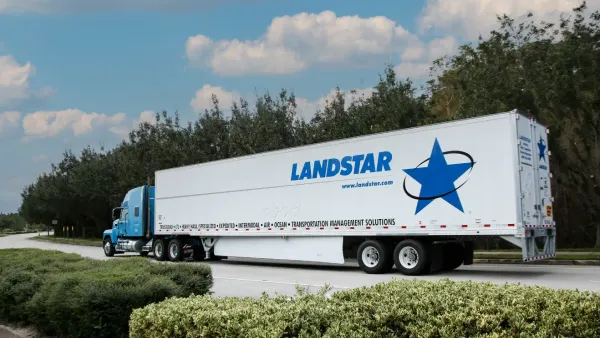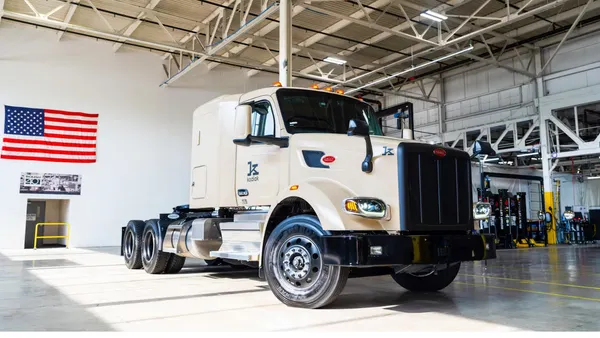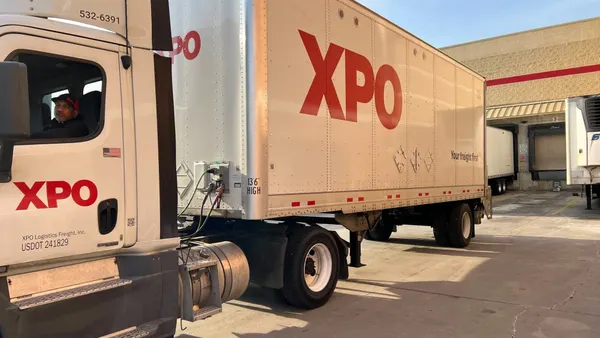Dive Brief:
- Companies worldwide completed 674 deals, valued at more than $100 million, last year — a 12.9% decline compared with 2019, and the lowest transaction total since 2009, according to research by Willis Towers Watson.
- Worldwide deal volume surged to 246 during Q4, a 17.1% increase compared with the final three months of 2019. Volume was driven by 136 transactions in North America, a record for Q4.
- By one measure, acquiring companies did not derive value from their transactions last year; their share prices lagged the MSCI World Index on average by 1.9%, Willis Towers Watson found.
Dive Insight:
A strong Q4 2020 indicates a likelihood of robust deal-making in 2021, Duncan Smithson, Willis Towers Watson senior M&A director, said. Pent-up demand, ample available capital, low interest rates and a return in confidence among business leaders will likely push up transaction totals in 2021, he said.
Experts in trucking M&A also cited pent-up demand as a catalyst for business moves this year. John Anderson, operating partner of Greenbriar Equity Group — whose investment portfolio includes companies such as LaserShip, Seko Logistics and Uber Freight — said the activity in Q4 is likely to be a trend.
"We feel there is momentum. We feel coming into 2021, we are riding a bit of a crest that 2020 ended with," Anderson said. "We proved M&A could be done in a travel-restricted environment. The pent-up demand of capital wanting to be invested is real."
Deal-making in the tech sector will probably rise, according to Smithson, fueled by the shift to remote work and growing support for a "green" economic recovery. Trillions of dollars in fiscal support may not be enough to avert widespread insolvency and a downturn in global growth. The travel, retail and real estate sectors already face accelerating consolidation, restructuring and divestiture.
In addition, the pandemic-induced shift to digital technology has made the location of target companies less important and expanded the pool of potential acquisitions.
And use of Special Purpose Acquisition Companies will probably spread beyond the U.S., especially to markets less tightly regulated than Europe. The rapid growth of SPACs in the U.S. has increased pressure on regulators elsewhere to approve such financing.
The new Congress could also add fuel to the M&A fire. Private equity firms and owner-operators may feel pressure to outrace any tax and regulatory changes it is considering under President Joe Biden's administration.
It's unclear how Congress will act and how priorities will shake out, but deal specialists noted there are a few scenarios in which those and other tax law changes could take effect before early 2022.
"We will be encouraging prospective clients to start the planning process early," Scott Rhodes, managing director of Citizens M&A Advisory, said in a Frazier & Deeter webcast. "That first quarter period will be heavy prep so people are ready to take advantage of that window before it closes."
Jim Stinson and S.L. Fuller contributed to this report.












